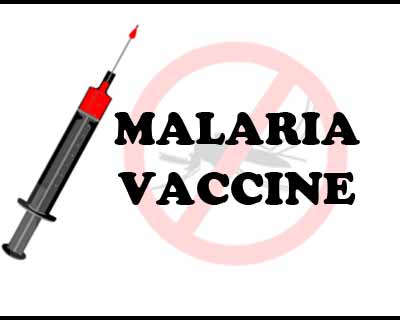- Home
- Editorial
- News
- Practice Guidelines
- Anesthesiology Guidelines
- Cancer Guidelines
- Cardiac Sciences Guidelines
- Critical Care Guidelines
- Dentistry Guidelines
- Dermatology Guidelines
- Diabetes and Endo Guidelines
- Diagnostics Guidelines
- ENT Guidelines
- Featured Practice Guidelines
- Gastroenterology Guidelines
- Geriatrics Guidelines
- Medicine Guidelines
- Nephrology Guidelines
- Neurosciences Guidelines
- Obs and Gynae Guidelines
- Ophthalmology Guidelines
- Orthopaedics Guidelines
- Paediatrics Guidelines
- Psychiatry Guidelines
- Pulmonology Guidelines
- Radiology Guidelines
- Surgery Guidelines
- Urology Guidelines
New Malaria Vaccine Blocks Infection for Over One Year

New York : An experimental malaria vaccine has been found to protect a small number of healthy people from infection for more than one year after immunisation, says a study.
The vaccine, known as the PfSPZ Vaccine, was developed and produced by US-based pharmaceutical company Sanaria.
"It is now clear that administering the PfSPZ Vaccine intravenously confers long-term, sterile protection in a small number of participants, which has not been achieved with other current vaccine approaches," said principal investigator of the trial Robert Seder from National Institute of Allergy and Infectious Diseases (NIAID), part of the US National Institutes of Health.
NIAID researchers and collaborators at the University of Maryland School of Medicine in Baltimore conducted the clinical evaluation of the vaccine, which involved immunisation and exposing willing healthy adults to the malaria causing parasite Plasmodium falciparum (P. falciparum) in a controlled setting.
The parasites that cause malaria are transmitted to humans through the bite of an infected mosquito.
The PfSPZ Vaccine is composed of live, but weakened P. falciparum sporozoites the early developmental form of the parasite.
Previous research showed the PfSPZ Vaccine to be highly protective three weeks after immunisation. In this trial, researchers assessed if protection could last for five months to a year.
For the phase one clinical trial, the researchers enrolled 101 healthy adults aged 18 to 45 years who had never had malaria.
Of these volunteers, 59 received the vaccine and 32 participants served as controls and were not vaccinated.
Vaccine recipients were divided into several groups to assess the roles of the route of administration, dose, and number of immunisations in conferring short and long term protection against malaria.
To evaluate how well the vaccine prevented malaria infection, all participants including the control participants who were not vaccinated were exposed at varying times to the bites of mosquitoes carrying the same P. falciparum strain from which the vaccine was derived.
The researchers found that the vaccine provided malaria protection for more than one year in 55 percent of people without prior malaria infection.
The findings were published in the journal Nature Medicine.
In those individuals, the vaccine appeared to confer sterile protection, meaning the individuals would be protected against disease and could not further transmit malaria.
The vaccinations were also well-tolerated among participants, and there were no serious adverse events attributed to vaccination, said the study.

Disclaimer: This site is primarily intended for healthcare professionals. Any content/information on this website does not replace the advice of medical and/or health professionals and should not be construed as medical/diagnostic advice/endorsement or prescription. Use of this site is subject to our terms of use, privacy policy, advertisement policy. © 2020 Minerva Medical Treatment Pvt Ltd